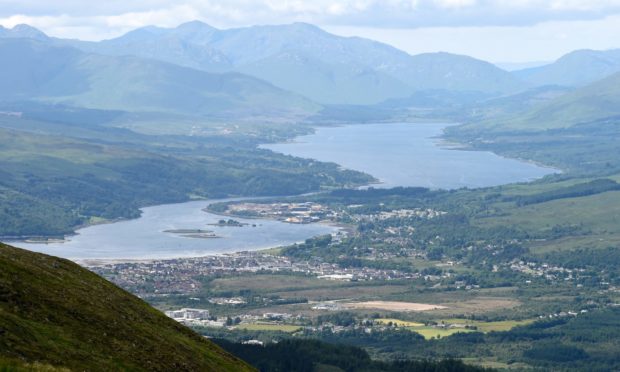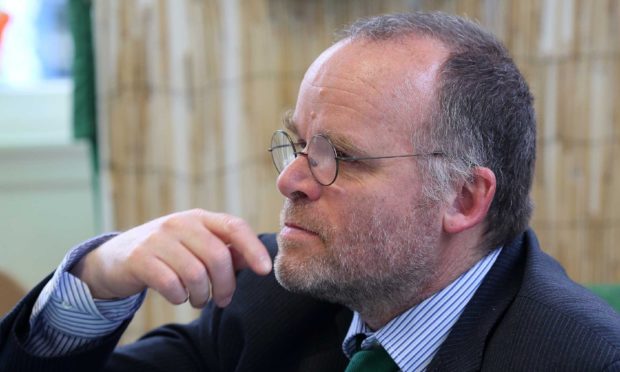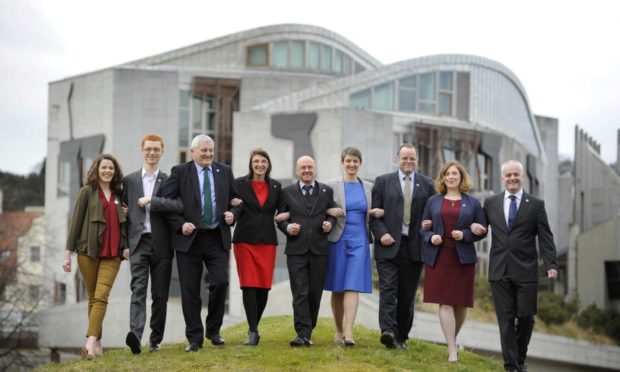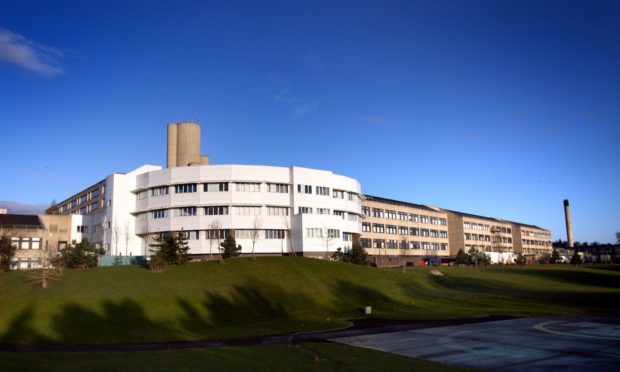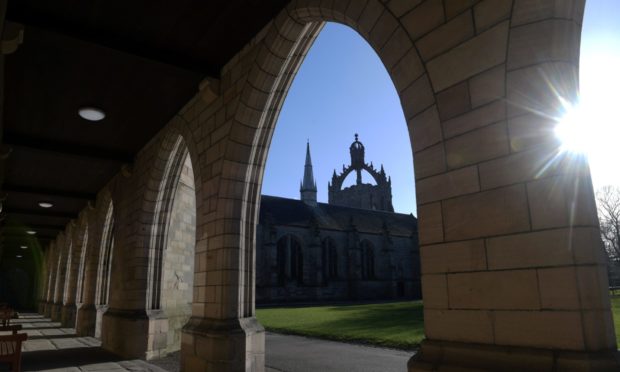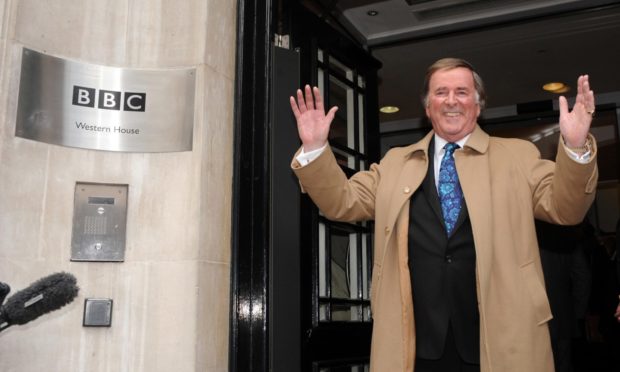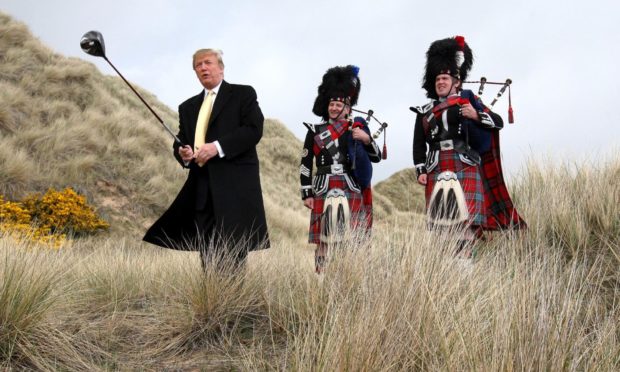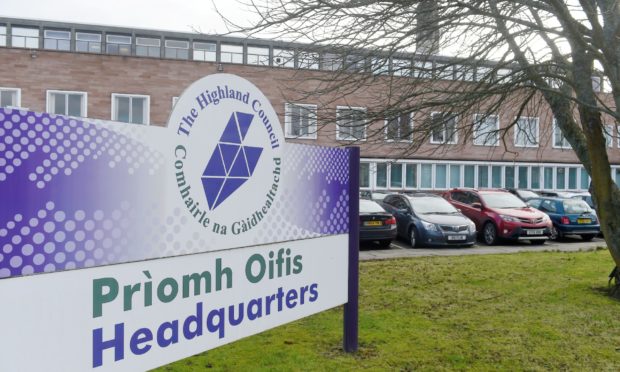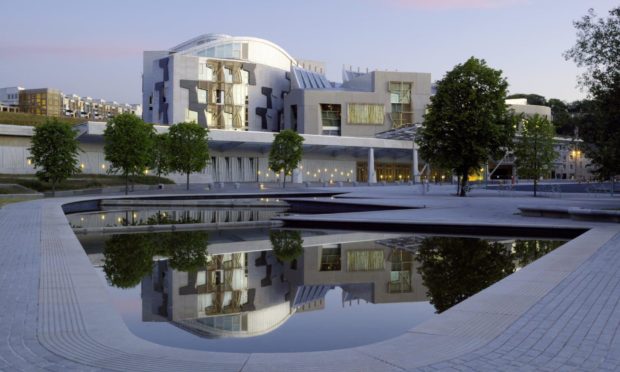Unlike the Scotland he exposed in his acclaimed books on land ownership, Andy Wightman gives the impression he is completely transparent and unbeholden to any hidden hierarchy or shadowy interests.
This independent-mindedness has been clear to all casual observers of Scottish politics in recent months as the Lothian MSP has found himself embroiled in two controversies which have come close to engulfing Holyrood at times.
The first, the divisive debate over transgender rights, led to Mr Wightman’s departure from the Scottish Greens on a point of principle in December.
And with the second, the parliamentary probe into the Scottish Government’s handling of harassment allegations against Alex Salmond, his position has often proved pivotal.
It would not have been the way the leading land reform campaigner had envisaged the final months of his first term in parliament playing out.
But Mr Wightman is not one to get caught up in the drama of it all, of course.
“Just nonsense,” he muttered at the start of our lengthy interview, when it was put to him that he had been busy of late.
The Lothian MSP was almost certainly referring to the latest furore over the Salmond inquiry.
A controversial leak, the evening before we spoke, had suggested he had voted with the four opposition MSPs to conclude that First Minister Nicola Sturgeon misled parliament.
“The last two or three months have been very difficult, actually,” he later said of the price he has paid for his independence on such matters.
“With this leak, and have I voted one way… This is the weird thing about being independent, lots of wild allegations and speculation have been made about my role on this committee.”
‘Transphobic amendment’
Mr Wightman had already faced a backlash at the end of last year following his departure from the Scottish Greens, which came in the wake of a vote on an amendment to the Forensic Medical Services (Victims of Sexual Offences) Bill.
He had wanted to vote for the amendment, which aimed to give sexual assault victims the right to choose the sex, rather than just the gender, of the medical professional who examined them.
But he said he was told it was a “transphobic amendment”, that “disciplinary action would follow, and it could lead to deselection or expulsion”.
I was totally fed up with the whole process. I just wanted out of it. There was a lot of backlash, actually, in the wake of it.”
Mr Wightman said: “I had an open, inquiring mind. I want to listen and all the rest of it, and there was quite a censorious attitude.
“I just felt that if I wanted to be able to vote, on occasions, as one chose, then colleagues should give me the latitude to do that.
“And they did have the power. As a group they had the power not to sack me if I didn’t vote with the group, that’s a choice, but they had chosen not to give me that assurance.”
The episode left the MSP, who entered Holyrood in 2016, considering a future away from politics after the upcoming election.
“I was totally fed up with the whole process. I just wanted out of it. There was a lot of backlash, actually, in the wake of it,” he said.
“I was aware obviously that there was an election coming up. I really didn’t know whether I wanted to stand.
“It’s an exhausting job being an MSP. If you do it well, it’s hard work. It’s a 60/70 sometimes 80-hour a week.
“It’s a secure job on a good salary, that is clear, but the price you pay for that is quite high, much higher than most people pay for a salary like that, in terms of the hours and the expectations, and also the impact it has on people’s personal relationships.”
Lothian to Lochaber
After being convinced to stand again by friends and family, Mr Wightman faced another dilemma because he was about to move to Lochaber, to be nearer his Skye-based mother.
He said: “Once we made that decision, it became a decision of ‘do I stand in Lothian again, where I would have a much better chance?’
“But I thought, ‘no, there is no way I can live in Lochaber and represent Lothian, that is wrong’.
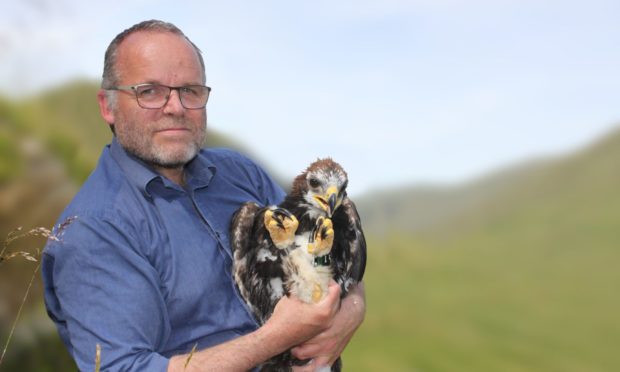
“I do believe people should live in the place they represent. It’s the only effective way you can operate, I think.”
Having opted to stand in the regional list in the Highlands and islands, he said: “I thought, ‘I will give it a go’. I think politics needs more independent-minded people.
“And it began to dawn on me that a lot of people do like that, they don’t particularly like the party system, and of course (in) the Highlands and islands you have councils that have been historically, and still to an extent are, dominated by independents.”
He added: “I’m now currently in the midst of fairly franticly trying to move house, trying to do the harassment committee, trying to finish my member’s Bill, trying to tidy up my office, and try to launch an election campaign. So yeah, it’s quite interesting.”
Land and freedom
Mr Wightman’s move north will bring him back to the Highlands, where his political journey began, in a sense.
Born in Dundee, where is father, Alan, was the lead architect on the design team for Ninewells Hospital, he had grown up in Kinross and Stirling.
“When I left school I didn’t know what to do and I went to work in Aberfeldy, Highland Perthshire, planting trees on a scheme called the Griffin Forest,” he said.
“I just got kind of intrigued about why we were doing all this.
“I was also living in a caravan quite high up the mountain, so I was on my own in the long winter nights and did a lot of reading.
“One of the books I took with me, it was kind of bizarre for a 17-year-old, was Jim Hunter’s The Making of the Crofting Community, and that kind of opened my eyes to the whole kind of land question.
“I got interested in the whole question of why the Midland Bank and its investors were planting trees in Aberfeldy, and on the basis of that decided to go and study forestry at Aberdeen.”
Mr Wightman ended up spending a decade in Aberdeen, although he often used his spare time to head for the Cairngorms and further afield.
It was during his studies at Aberdeen University that his attention turned to the controversy over forest planting at part of the Flow Country in Caithness and Sutherland.
Cliff Richard, Terry Wogan and Alex ‘Hurricane’ Higgins
Conifers were planted in the late 1970s and early 1980s in a tax concession scheme created by Margaret Thatcher’s government, with investments written off against personal income tax.
It attracted celebrity investors such as Cliff Richard, Terry Wogan and Alex ‘Hurricane’ Higgins.
“When I was studying forestry, and when I got more interested, I suppose, in the politics of it, was the whole fuss with the Flow Country, the Caithness and Sutherland peatlands deforestation was going on,” he said.
“And I was asking awkward questions about why the crofters and the farmers in Caithness weren’t planting the trees, why it was Hurricane Higgins and Dame Shirley Porter and people who were doing it instead.
“Those questions weren’t terribly appreciated but I realised at that point, well, I had been realising up to that point, that the whole question of land and its ownership and control is quite a central question in development terms.”
He added: “It was the political dimension that annoyed me because I thought, well, if there is going to be new forestry, new jobs, new industries… then it should be local communities, local famers, local landowners, local crofters doing it.
“That was the point that it crystalised to me that it was important to bring land back into greater local control, by which I mean not just ownership but the whole governance about determining how it was to be used and all the rest of it.”
After university, Mr Wightman researched renewable energy and aspects of forestry for a few years, before moving to Shotts to work for the Central Scotland Countryside Trust, which was involved in the restoration of old coal mines and steel works.
He subsequently worked for Reforesting Scotland, before he “got fed up being told what to do all the time, as it were, and struck off and became a self-employed writer and researcher in 1994”.
Who Owns Scotland
Around then, a friend who had recently written a book with the Edinburgh-based publisher Canongate told him that it was interested in rewriting John McEwan’s Who Owns Scotland, a commission Mr Wightman went on to secure.
He spent the next 18 months writing and researching his publication documenting land ownership in Scotland, which was released to widespread acclaim in 1996.
“No-one really had been writing much about this, it was very limited material,” he said.
“It was also of course the fag end of the Conservative government, and a Labour government and devolution were on the horizon, as it were.
“It seemed to me that one of the big problems was that people… just didn’t know much about how land is owned, land rights and all the rest of it, and neither did they know who owned the land.”
Donald Trump’s Ego Trip
Mr Wightman continued to write and research throughout the 2000s on various topics.
“I likened it to picking up a stone, turning over a stone, and just seeing what was underneath. Stuff that had remained a bit hidden, and a bit obscure, I was keen to bring into the light,” he said.
In 2007 and 2008, his father had taken an interest in the controversy surrounding Donald Trump’s plans to build a golf course development in Aberdeenshire, and sent newspaper clippings to his son, who was living in Ethiopia with his partner at the time.
“When I was there, and shortly after I came back, I wrote a report called Donald Trump’s Ego Trip, which just tried to pull together all the facets of that campaign, that whole story, only the environmental designations, the whole planning aspect, the ownership aspect, the local community aspect, the media aspect,” he said.
“It’s rather like the harassment inquiry – the media seems to be interested in the big personalities and the clashes, but underneath there is a fascinating story emerging at the local level about the local people, and stuff.”
By this time, community groups across Scotland were calling on Mr Wightman for his assistance with various local battles, as were political parties seeking to fine tune their policies on land reform.
Mr Wightman joined the Greens in 2009, describing it as a “clear home to me”, although he continued advising other parties.
It was only in the aftermath of the 2014 independence referendum that he considered standing for election.
“I’m not a nationalist. I didn’t get into politics because I want an independent Scotland. But I’m a profound supporter of having more say and all the rest of it,” he said.
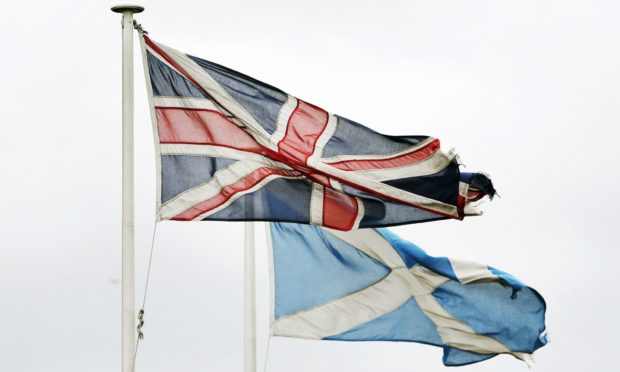
After his election as a Green MSP on the Lothian list in 2016, Mr Wightman soon realised that “unless you are in government, you are not driving the agenda, you are actually quite reactive”.
He said: “So what you need to do is, you need to pick up two or three things – I mean as well as doing all the work you need to do in committees and stuff – but pick up two or three things that you want to pursue, and campaign on.
“Which is what I did with the whole short-term lets stuff, which was affecting Edinburgh very badly, and we made progress on that.”
Mr Wightman also encountered a familiar problem when he arrived at Holyrood.
‘Shockingly ignorant’
“There are meetings (where) I would sit down with organisations, I won’t name any of them, but who you would expect to know quite a bit about how the political process worked, but were shockingly ignorant,” he said.
“It was rather like my land experience. That was quite surprising to me.
“I thought, well, how are we going to make a success of democratic institutions like the parliament – indeed what I want to see is more local democracy – unless people understand how stuff works?”
He added: “We lack political literacy, I call it, in this country, and one of the reasons for that is that we don’t have enough democracy.”
The idea that Highland Council is a local council, when Ballachulish and John O’Groats are in your same local council, it’s just utter nonsense.”
One of Mr Wightman’s solutions to the problem, which he admitted might not be popular with everyone, would be to create far more local authorities.
“The idea that Highland Council is a local council, when Ballachulish and John O’Groats are in your same local council, it’s just utter nonsense,” he said.
“Generally speaking, I’m going to make a big pitch in this campaign that whether it is on health, or transport, or the environment, decisions taken in Edinburgh, or indeed Inverness, should be taken much, much more locally.
“We need more local democracy, not less. It’s actually quite a hard sell initially – people resist it, and say ‘we’ve had enough of politicians’ and ‘look at the folk in the council, do you want any more of them?’
“But then when you talk to people and say: ‘Look, this is part of the problem, you are alienated from them to such an extent that you have no trust or confidence in them, this has broken down over the years, how about building it up again?’
“Then folk get quite interested because you can talk about issues to do with the health service, or the environment, and how if you had more control over these issues you could come up with more imaginative solutions, for which there would be more local accountability, rather than a reliance on people in Inverness or Edinburgh.
“So I would have many, many more local authorities. I mean I would move towards the more European norm, which is that 5,000 to 10,000 people is your local municipality.”
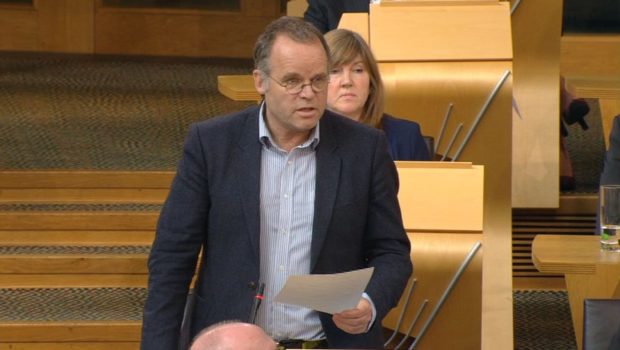
In the next parliament, if elected, Mr Wightman promised to bring forward a “Land for the People Bill”, that could aim to devolve powers over the foreshore of the Crown Estate and introduce new controls on the spread of holiday homes in rural areas.
He said he also hoped to unite the 15 MSPs for the Highlands and Islands in a new “caucus” that would fight for the region’s interests at Holyrood.
One issue they might find common agreement on is their support for dualling the A9 between Perth and Inverness, which the Greens had long opposed.
“I’ve never been against road upgrading and maintenance; however, the issue here is about priorities,” Mr Wightman said.
“I actually happen to think that dualling the A9 is a priority but I also think main line between the central belt and the Highlands is a priority as well.”
Who succeeds in politics…
Despite a tumultuous few months at Holyrood, Mr Wightman is clearly more comfortable now he is free to reach his own conclusions and positions on such topics, or even to retain an open mind on others.
He believes Scottish politics would be better served if it had more representatives who felt able to do the same.
“A lot of the decisions we have to take are quite nuanced, they are not black and white, they require us to say things like ‘I don’t know’, and ‘I’m not sure’,” he said.
“And often the incentive for politicians is to be certain all the time, that’s the incentive, and people who are certain, confident, good communicators, mainly men, succeed in politics.
“Those with a more inquiring mind, who are more shy and retiring, thinking, don’t make it but, actually, they are just as important.”
